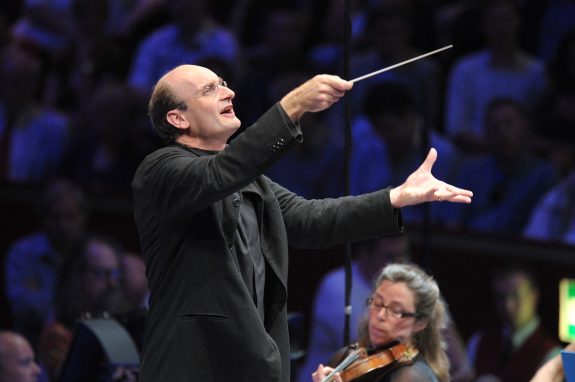 United Kingdom Honegger, Ravel, Haydn: Steven Osborne (piano), Scottish Chamber Orchestra / Andrew Manze (conductor). Queen’s Hall, Edinburgh, 25.4.2024. (SRT)
United Kingdom Honegger, Ravel, Haydn: Steven Osborne (piano), Scottish Chamber Orchestra / Andrew Manze (conductor). Queen’s Hall, Edinburgh, 25.4.2024. (SRT)

Honegger – Pastorale d’été
Ravel – Piano Concerto in G; Pavane pour une infante défunte
Haydn – Symphony No. 87
I really look forward to Andrew Manze’s concerts with the Scottish Chamber Orchestra. He has been a regular guest with them for years, and his concerts are usually season highlights for me. And this week his relationship with the orchestra was put on a new level when he was made the orchestra’s Principal Guest Conductor, a recognition from both him and them that their relationship achieves something special.
One of the great things about his visits is his habit of planning interesting programmes, and in that sense this concert was typical. Where else, after all, would you expect to find Honegger and Haydn on the same billing? In fact, this reading of Haydn’s Symphony No.87 was something of a Manze classic: a slightly obscure Haydn symphony which, on the surface, doesn’t have a huge amount to make it stand out, but which here had life breathed into it, turning it into something really interesting. He leaned into the rum-ti-tum opening but let the first movement unfold into something altogether more subtle, with clever use of daringly elongated silences and a finale that seemed to revel in posing lots of questions but only occasionally providing cheeky answers. Meanwhile, in the slow movement, which took its own sweet time, there was a real sense of conductor and musicians at work in the music’s engine room, drawing out the distinctiveness of the inner textures in a way that lifted them way above the level of a mere accompaniment.
They also let Honegger’s Pastorale d’été breathe with a gorgeous air of slow relaxation, easy and broad yet also propulsive, almost like a rowing song. If this was the sound of Honegger’s Alpine holiday, then you can see why he enjoyed it so much. Ravel’s Pavane unfolded in a similarly natural style, the iteration of the main theme by the violins sounding like a quiet consummation after some gorgeous wind and horn playing.
For Ravel’s Piano Concerto in G they were joined by the flying fingers of pianist Steven Osborne, and if the opening took a while to find its feet, conductor and soloist struggling to slot into one another’s tempi, then it settled lazily into the woozy-bluesy second theme, giving the music a sense of relaxation that was a foretaste of a gorgeously broad slow movement. The orchestral sound throughout was agile and transparent, showcasing the benefits of doing the concerto with a chamber orchestra, and Osborne’s piano line slotted into them now with perfect naturalness. His encore felt like an extension of the concerto’s relaxed, jazzy style; Osborne’s own transcription of Keith Jarrett’s My Song, which felt like the audio equivalent of a cigarette jauntily balanced on a cocktail glass.
Simon Thompson
